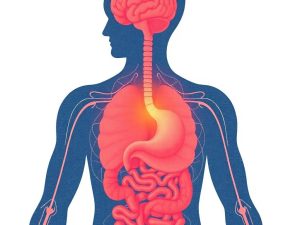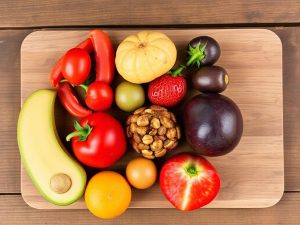The Connection Between Food and Mental Health
Our mental health is deeply influenced by what we eat. Nutrition not only fuels our bodies but also plays a pivotal role in how we feel, think, and manage stress. Understanding the connection between food and mental health can empower you to make better dietary choices for overall well-being.

1. The Gut-Brain Axis
The gut and brain are intricately connected through a communication network known as the gut-brain axis.
- Microbiome Impact: The gut houses trillions of bacteria that produce neurotransmitters like serotonin, which regulates mood.
- Digestive Health: A healthy gut improves mental clarity, reduces anxiety, and enhances emotional stability.
2. Nutrients That Support Mental Health
Certain nutrients have a direct impact on brain function and mood:
- Omega-3 Fatty Acids: Found in fatty fish, walnuts, and flaxseeds, these fats support brain health and reduce symptoms of depression.
- B Vitamins: Foods like leafy greens, eggs, and whole grains help produce energy and reduce brain fog.
- Magnesium: Nuts, seeds, and dark chocolate are known to combat stress and improve sleep quality.
- Antioxidants: Colorful fruits and vegetables protect brain cells from damage caused by oxidative stress.
3. Foods to Boost Your Mood
Incorporate these foods into your diet to enhance mental well-being:
- Probiotic-Rich Foods: Yogurt, kefir, and fermented foods like kimchi improve gut health and mood.
- Dark Leafy Greens: Spinach and kale reduce inflammation and promote cognitive function.
- Whole Grains: Quinoa, oats, and brown rice stabilize blood sugar levels and prevent mood swings.
- Berries: Packed with antioxidants, berries help combat stress and support brain health.

4. Foods That May Harm Mental Health
While some foods nourish the mind, others may have adverse effects:
- Sugary Snacks: Excess sugar can lead to energy crashes and exacerbate anxiety.
- Processed Foods: These often lack essential nutrients and are linked to higher rates of depression.
- Excessive Caffeine: High doses can trigger anxiety and disrupt sleep.
5. The Role of Hydration
Dehydration can lead to irritability and difficulty concentrating.
- Aim for at least 8 glasses of water daily to keep your brain hydrated and functioning optimally.
6. Mindful Eating for Mental Health
- Slow Down: Eating mindfully allows you to enjoy your meals and recognize hunger cues.
- Listen to Your Body: Avoid emotional eating and focus on consuming foods that make you feel energized and balanced.
Practical Tips for a Brain-Healthy Diet
- Plan Balanced Meals: Include a mix of protein, healthy fats, and complex carbs.
- Snack Wisely: Choose nuts, seeds, or fruits over chips and candy.
- Cook at Home: Preparing meals at home gives you control over ingredients.
- Limit Alcohol: Excessive alcohol can worsen mood disorders and disrupt sleep.
Mental Health Benefits of a Healthy Diet
- Improved mood and emotional stability
- Enhanced focus and memory
- Reduced symptoms of anxiety and depression
- Better stress management
Call to Action:
Start nourishing your mind with healthier food choices today. A balanced diet is a powerful tool to support both your body and your mental health.







